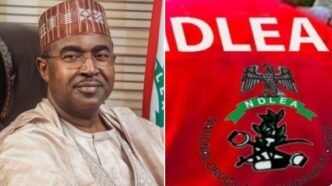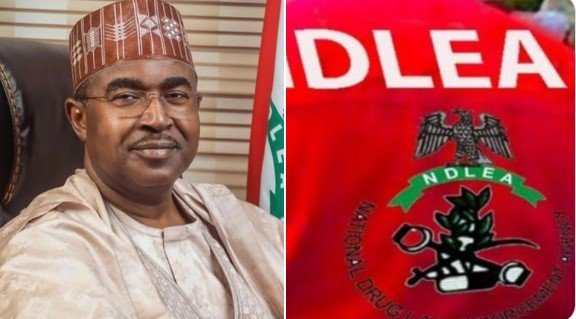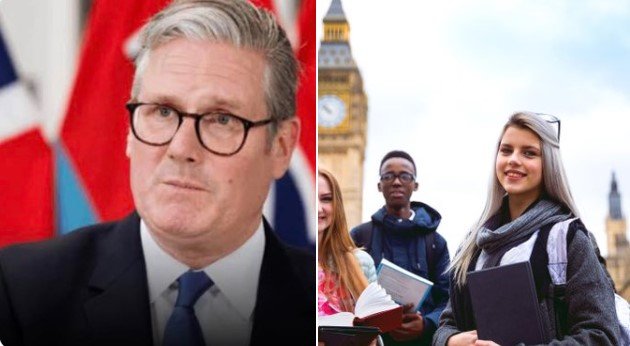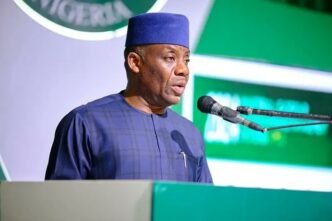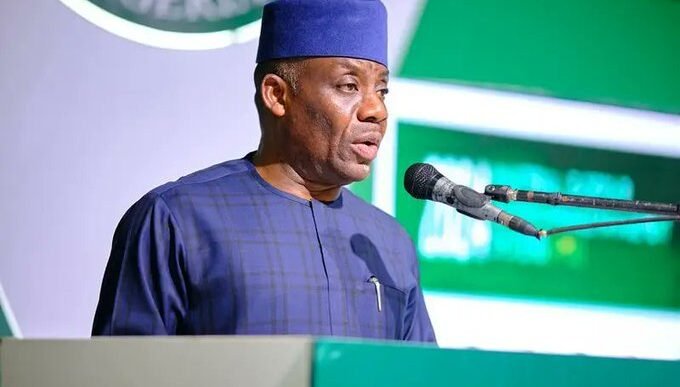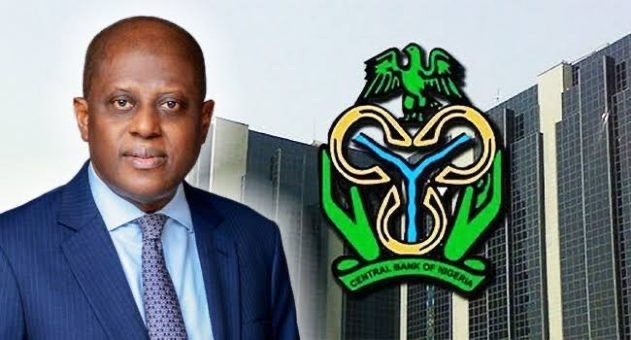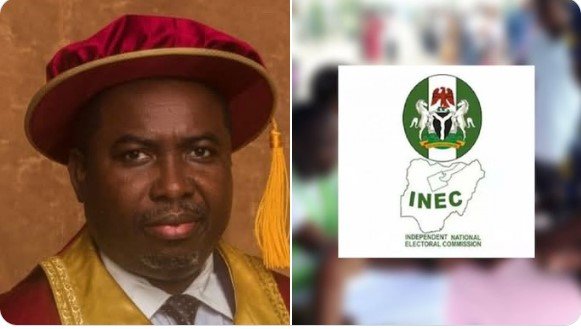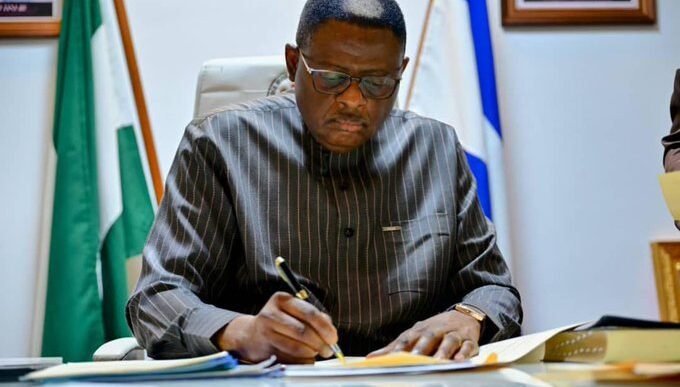President Bola Ahmed Tinubu has renewed the appointment of Brigadier-General Mohammed Buba Marwa (retired) as Chairman and Chief Executive Officer of the National Drug Law Enforcement Agency (NDLEA) for another five-year tenure. The decision, announced on Thursday, marks a strong vote of confidence in Marwa’s leadership and sets the stage for the continuation of Nigeria’s intensified war against drug trafficking and substance abuse through 2031.
A Vote of Confidence from the Presidency
The renewal underscores the administration’s satisfaction with the agency’s achievements under Marwa’s watch since he was first appointed in January 2021. According to the presidency, Marwa’s re-appointment reflects the government’s commitment to sustaining momentum in tackling illicit drugs, dismantling trafficking networks, and curbing domestic drug abuse—issues that have grown into national security concerns.
President Tinubu, while approving the extension, praised the NDLEA chief for his “tireless and result-driven efforts” in confronting criminal drug networks and protecting young Nigerians from the dangers of harmful substances. The president urged Marwa to “sustain the pressure” on drug cartels and intensify reforms within the agency.
Marwa: A Leader with a Distinguished Track Record
Mohammed Buba Marwa brings decades of military, diplomatic, and administrative experience to the NDLEA. Born in 1953, he trained at the Nigerian Defence Academy and rose through the ranks of the Nigerian Army, serving in pivotal positions including Brigade Major of the 23 Armoured Brigade and Aide-de-Camp to the Chief of Army Staff.
Marwa’s military résumé is extensive. He was Deputy Defence Adviser at the Nigerian Embassy in Washington, D.C., and later served as Defence Adviser at Nigeria’s Permanent Mission to the United Nations. His academic profile is equally strong, with a Master of Public and International Affairs from the University of Pittsburgh and a Master of Public Administration from Harvard University.
Politically and administratively, Marwa is best known for his tenure as Governor of Borno State between 1990 and 1992, and later as Governor of Lagos State from 1996 to 1999. During his Lagos administration, he initiated several urban reforms and is still remembered for his impactful public-service programs.
Before his appointment as NDLEA Chairman, Marwa served as Chairman of the Presidential Advisory Committee for the Elimination of Drug Abuse, a role in which he helped shape national strategies on drug demand reduction.
NDLEA Under Marwa: A Tenure Marked by Major Operations
Since 2021, the NDLEA has undergone what many observers describe as its most transformative era in decades. Under Marwa’s leadership, the agency has recorded:
- Tens of thousands of arrests of drug traffickers, couriers, and cartel operatives
- Multi-million-kilogram seizures of narcotics including cocaine, heroin, cannabis, methamphetamine, and opioids
- High-profile crackdowns on major drug syndicates operating within and outside Nigeria
- Strengthened partnerships with international agencies such as INTERPOL, the UN Office on Drugs and Crime, and foreign law-enforcement bodies
- Modernization of NDLEA operations, intelligence-gathering, and border-control systems
- Expansion of drug-rehabilitation and public awareness programs
Analysts note that the agency’s rising operational visibility under Marwa has significantly raised public confidence and put Nigeria at the forefront of anti-drug enforcement efforts in West Africa.
Why the Re-Appointment Matters
The extension of Marwa’s tenure comes at a critical time. Nigeria continues to grapple with rising drug abuse rates—especially among young people—alongside an expanding regional drug-trafficking corridor exploited by international cartels. The NDLEA also faces pressure to deepen reforms, improve conviction rates, and strengthen rehabilitation and prevention programs.
By keeping Marwa in office, the Tinubu administration appears focused on:
- Maintaining continuity in an agency currently undergoing a major overhaul
- Ensuring stability in ongoing multi-year operations that require consistent leadership
- Boosting international confidence, particularly among global anti-narcotics partners
- Consolidating reforms in intelligence, training, logistics, and inter-agency collaboration
This continuity is expected to reduce disruption to ongoing operations and preserve strategic gains made over the last four years.
The Road Ahead: Expectations and Challenges
While Marwa’s reappointment has been widely welcomed, expectations for the next five years are high. Analysts predict that his renewed mandate will intensify scrutiny on the agency’s capacity to deliver more measurable, long-term results.
Key challenges include:
1. Increasing Conviction Rates
Despite large-scale seizures and arrests, Nigeria’s conviction rates for drug-related offences remain disproportionately low due to court delays, legal bottlenecks, and weak case-management systems. Improved coordination between the NDLEA, judiciary, and Ministry of Justice will be essential.
2. Expanding Rehabilitation Services
Drug abuse is increasingly viewed not just as a criminal issue but as a public-health crisis. Nigeria’s rehabilitation capacity remains limited relative to the scale of addiction, especially among youths. Marwa’s next term is expected to place greater emphasis on drug-treatment centres, counselling, and community outreach.
3. Strengthening Border Security
Nigeria’s vast land and maritime borders—particularly in the southwest, northeast, and the Gulf of Guinea—remain vulnerable to trafficking. Enhancing surveillance technology, personnel training, and international partnerships will be crucial.
4. Curbing Youth Drug Abuse
Synthetic drugs, opioids, and locally-produced substances like “skushies,” codeine mixtures, and methamphetamine pose growing threats. Community-level prevention strategies, coupled with school-based education, will be necessary to curb their spread.
5. Institutional Funding and Capacity Gaps
Enforcing drug laws at the scale Nigeria requires demands sustained financial investment. Training, logistics, intelligence systems, and welfare reforms for officers remain priority areas requiring government support.
A Politically Strategic Move
Tinubu’s decision also carries political significance. Marwa is widely respected across Nigeria’s security and political sectors, and his leadership style—firm, disciplined, and reform-driven—aligns with Tinubu’s public posture on national security matters.
Moreover, Marwa’s past governance of Lagos State, where Tinubu later succeeded him, places both men within a long-standing administrative lineage. The renewed appointment may signal the president’s preference for experienced technocrats and security professionals in critical positions.
What Nigerians Should Expect in the Next Five Years
Experts predict the following areas will define Marwa’s new term:
- Stricter enforcement and more advanced intelligence-led operations
- Expansion of NDLEA presence across airports, seaports, and border communities
- Greater disclosure of performance metrics including quarterly reports
- Heightened international cooperation to dismantle transnational drug rings
- Policy reforms promoting treatment, prevention, and youth-focused interventions
- More digital and forensic tools in drug detection and prosecution
If executed effectively, these strategies could significantly weaken criminal drug economies and reduce drug dependence across Nigeria.
Conclusion
President Bola Tinubu’s decision to retain Brigadier-General Mohammed Buba Marwa at the helm of the NDLEA for another five years signals a clear commitment to sustaining and deepening Nigeria’s war against illicit drugs. Marwa’s tenure has delivered major milestones—large-scale seizures, increased arrests, improved inter-agency coordination, and a revitalized operational culture at the NDLEA.
But the next chapter will be far more demanding. Nigerians will expect results that go beyond enforcement—results that reshape communities, rescue young people from addiction, strengthen borders, and reduce the influence of powerful drug networks.
With a renewed mandate, Marwa now faces the defining challenge of converting momentum into long-term, measurable national impact. His ability to do so will determine not only the legacy of his leadership but also the effectiveness of Nigeria’s broader security and public-health strategies in the years to come.

